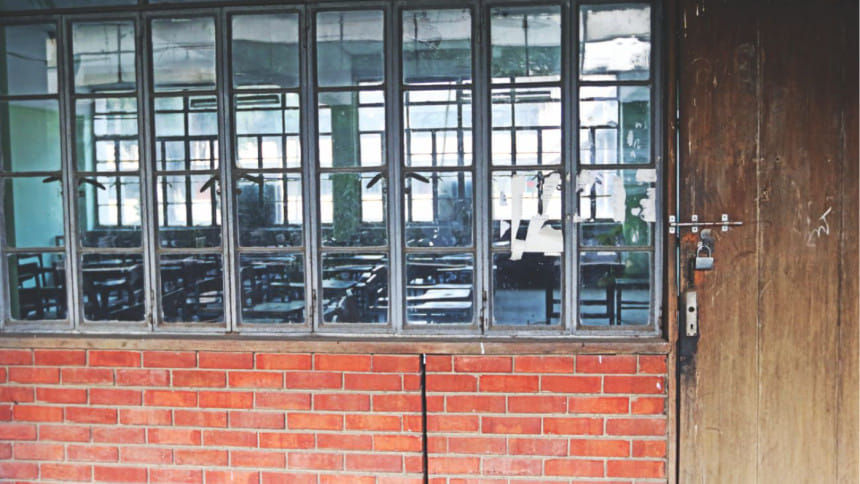The Unresolved Conundrum

Photo: Prabir Das
From January 11, 2016 teachers' strike over pay and status disparity suspended academic activities of all the thirty seven public universities in Bangladesh for nine days. The dissatisfaction among the teachers started to brew last year when the 8th pay scale was announced abolishing the post of selection grade professors which was equal to the post of secretary in salary and status. Besides, the status and salary of the bureaucrats have been upgraded by creating a superior post called 'Senior Secretary' which is at least two times higher than the 'Senior Professor', the highest rank of the university professors introduced by the new pay scale.
Thus, despite the fact that the pay has increased, the status along with salary have gone down.
However, from the very beginning, the demand of the agitated professors to remove the discriminatory provisions of the new pay scale has been harshly refuted. The Prime Minister herself criticized the professors saying, “If you want status equal to secretaries, just resign and become a secretary by sitting examinations through the PSC” (The Daily Star, January 12, 2016). The protesting professors replied, “We don't want to be secretaries. Why would we want to be secretaries? It's us who make secretaries. ”
However, after a weeklong deadlock, the ice started to melt when the Prime Minister invited the protesting teachers to her residence for an informal meeting on 18th of the month. Eventually, the Prime Minister promised steps to be taken whereupon professors would be promoted to grade 1 from grade 3.
The promises made by the Prime Minister have been appreciated well. However, the promise should not be limited to only increasing the salary and upgrading status. For a sustainable solution, our leaders should look at the root of this national crisis.
In its election manifesto in 2008, the current government promised that they would set a separate pay scale for university teachers. But it was never implemented. Still university teachers are getting paid in comparison with the bureaucrats although the nature of the two professions is entirely different.
A university teacher receiving promotions is also in the hands of the bureaucrats – to be more specific, a committee consists of civil servants under the University Grants Commission. However, it is very obvious that a university teacher should be promoted based on his scholarly researches, publications and achievements in his own discipline -- something that civil servants may have no idea about at all.
In the last six years, from 2010 to 2016 this government has established six new public universities. However, no visible steps have been taken to invest on the fundamental researches in the universities. Currently, public university teachers do not get any government scholarship for research or higher education. Once teachers would ask for research grants or scholarships for higher studies, allegations of them being politically motivated or involved in corruption would creep up to make them silent again. For a few unethical ones, all teachers are unfairly deprived of their legitimate rights.
If we think of our nation as a human body, then university sector would be its brain. In Bangladesh almost all the skilled manpower – in technical fields, administration, judiciary, or development sector – are created by university professors. If these creators do not get the proper facilities, the trickledown effect would be fatal. Eventually, there would be no dedicated, capable scholars and teachers in the country and our nation will run like a ship without a rudder.

 For all latest news, follow The Daily Star's Google News channel.
For all latest news, follow The Daily Star's Google News channel. 



Comments